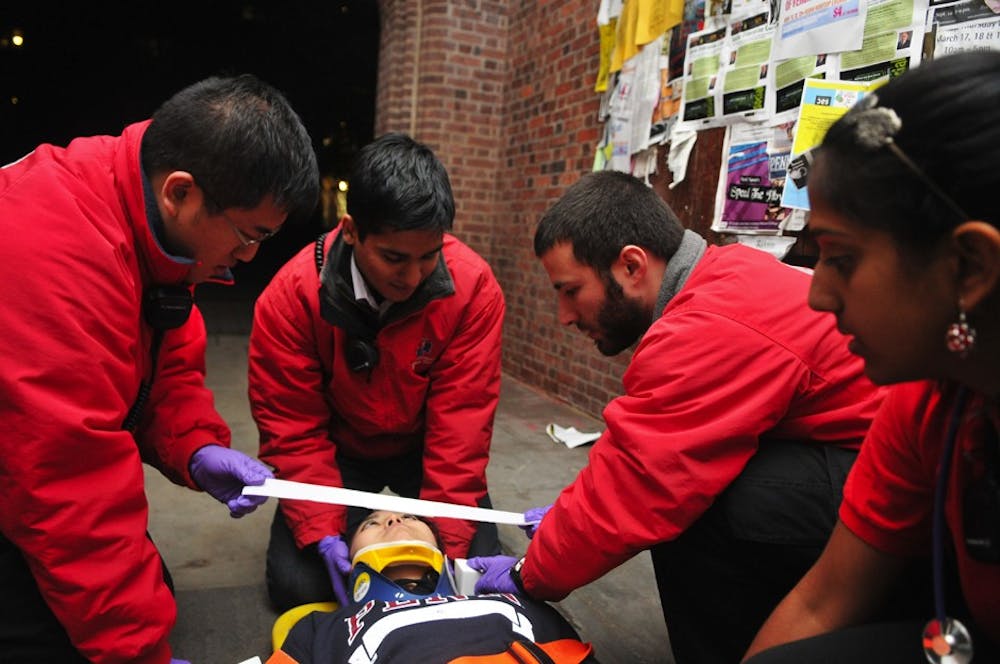
Best known as the red-shirted volunteers biking through campus nightly to assist the Penn community, the Medical Emergency Response Team has been officially recognized by the state of Pennsylvania.
MERT has become the first university EMS organization to be officially recognized as a Quick Response Service agency in the Philadelphia region by the Department of Health. This required the submission of an application to the Department of Health and an inspection of MERT’s equipment, procedures and protocols by the Fire Department. This ensures MERT is properly prepared according to state guidelines to respond effectively to campus emergencies and that patient information is kept strictly confidential.
The student-run organization works with Penn Police and the Philadelphia Fire Department, sending medical assistance in response times of under five minutes to anyone who calls the Division of Public Safety within the Penn Patrol Zone, which extends from 43rd to 30th streets between Market Street and Baltimore Avenue. The student volunteers are active from 5 p.m. to 7 a.m., and are especially involved during major campus events such as New Student Orientation and Spring Fling.
MERT Chief Daniel Spielman is pleased with the recognition. “For the near future, this doesn’t necessarily change our day-to-day processes, but the major thing is that we will be recognized by the state, and have more oversight from the highest level — the state officials,” he said. “We will be essentially governed by state laws, and as they change, we will change accordingly.”
According to Robert Cooney, EMS Operations Manager of Pennsylvania Department of Health, a new EMS Act was signed into law by Gov. Edward Rendell in 2009. The act, which will be instituted in the coming months, included updated equipment requirements, procedures and regulations for all licensed EMS providers, and officially recognized all QRS agencies.
“The new act made rules clearer that were previously not as defined. For instance, a person defined as a patient must be transported by ambulance only,” Philadelphia Regional EMS Director George Butts said.
Because of the soon-to-be-implemented legislation, MERT decided to work towards state recognition as soon as possible. “My understanding is that [the Act] would require EMS organizations to be officially recognized, or would change requirements that would make recognition more difficult. We wanted to get in the process early,” Spielman said.
Campus organizations such as DPS and Student Health Services assisted MERT with the application process. MERT has also received political and financial support from Fox Leadership and the Undergraduate Assembly. “It was a collaborative effort [within the Board of MERT and the Office of Student Affairs]” Spielman added.
For Butts, MERT’s licensing reflects its first-hand knowledge of the Penn community.
“The advantage of student-based response teams like Penn’s is that they know their clientele better. They do not take the place of 911, but they are more than capable of handling campus emergencies and bring their expertise to the scene,” he said. “QRS provides another layer of pre-hospital care for all citizens. Each serve very specific groups and neighborhoods, and they allow for more personal and local involvement in medical and health care.”
Spielman added that MERT is constantly looking to further professionalize itself, and “becoming formally recognized…is a way of accomplishing that.”
The Daily Pennsylvanian is an independent, student-run newspaper. Please consider making a donation to support the coverage that shapes the University. Your generosity ensures a future of strong journalism at Penn.
DonatePlease note All comments are eligible for publication in The Daily Pennsylvanian.




